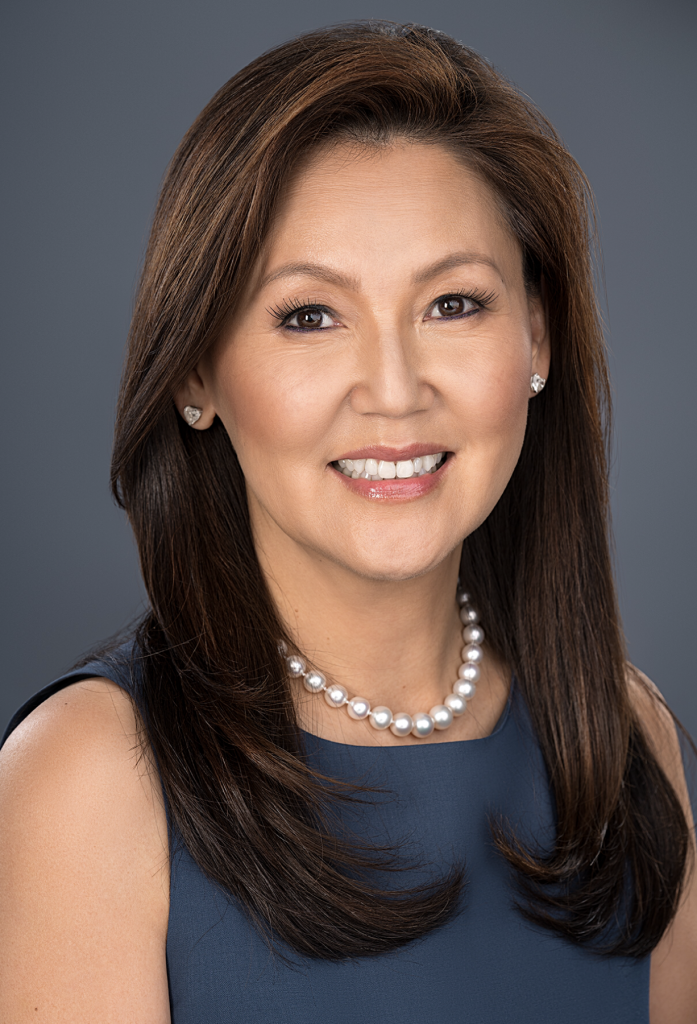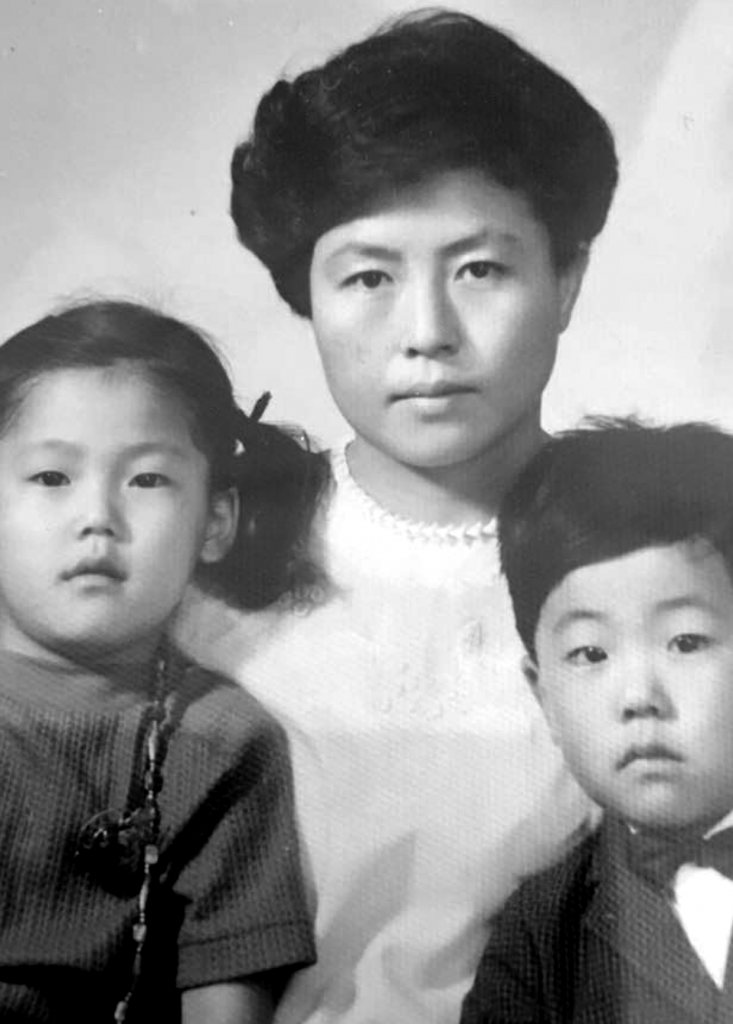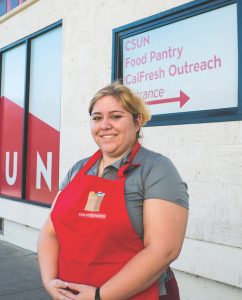Jihee Huh and Her Uniquely American Philanthropic Legacy
Hope is what Jihee Huh started with and hope is what she continues to call on through hard times.

Huh, now a successful businessperson, activist, and philanthropist, found hope early, as a South Korean whose family fought for every rung of the ladder to success.
“All we had was hope, because we couldn’t speak the language, we didn’t have money, we had each other,” Huh says. “We didn’t have anybody else to rely on but ourselves… I think most immigrants who come to this country have similar experiences and, 50 years fast forward, I’m afraid we are losing hope. And that is the biggest thing; we cannot lose hope.”
Aware of how far she’s come and how fortunate her journey has been, Huh is almost relentless in giving back, whether it’s her work with public service journalism, human rights, or political activism that has her rubbing elbows with the likes of Vice President Kamala Harris.
Her late father, Hyung Ki Kim, immigrated to the United States in 1964. He had been a liaison with American servicemen in the early days of the Vietnam conflict and got invited to the 1964 World’s Fair in Flushing Meadows-Corona Park, Queens. Kim started a business that helped immigrant Korean Americans get their feet on the ground and start small businesses. Huh, along with her mother and brother, followed Kim to New York in 1970.
Huh attended St. John’s University in the roaring ‘80s, when Chris Mullin, Mark Jackson, and Walter “The Truth” Berry led upstart St. Johns to the NCAA final four. She met her husband, Pete Huh, while visiting her brother at Amherst in 1987. “Against my brother’s wishes, I dated his roommate,” she laughs.
Despite her brother’s admonitions, some 34 years later things have clearly worked out. Pete and Jihee’s two kids also attended Amherst “and hopefully our grandchildren will go there. We love the college,” Huh says.
Her husband’s story is just as fascinating as hers. Pete’s father Joe Huh was a journalist by trade when he came to the U.S., but his English was limited so he took jobs as a cleaning person and as a painter. He realized he had a passion for cooking and got a job as a sous chef. Then, Joe was introduced to the wholesale seafood business. Joe started selling seafood to Korean Americans and Joe’s Seafood opened an office in downtown Los Angeles in 1975, which begat Pete’s Seafood, which begat the Pacific American Fish Company – a global, full-service seafood company providing more than 5,000 fresh and frozen seafood products and overseeing the Oceankist, Pacific Surf, Pete’s Seafood, and PAFCO brands.
As was the case with Jihee, Pete Huh’s family came here with very little, but they didn’t have nothing. They arrived in an arguably more favorable landscape for immigrants and dreamers – one that provided subsidized housing and a Small Business Administration Loan that was enough to get Joe up and running before the dream of a seafood empire had taken root.
Jihee would like to see more of this kind of dream seeding. “How are we able to give access to capital? How are we able to give opportunity?” she asks. “Instead of being easier for people, it’s now becoming a bigger barrier.”
Huh has been a generous and consistent Democratic Party donor and was recognized in 2007 for her work in getting House Resolution 121 passed. The resolution called upon Japan to recognize and apologize for the coercion of Asian women into sexual slavery (so-called “comfort women”) during Japan’s occupation of Asia and the Pacific Islands in the ‘30s and through World War II. In 2018, the Anti-Defamation League honored her with its Deborah Award.

Over the years, Huh has compiled a staggering portfolio of philanthropic and community activism. She joined the board of Southern California Public Radio in 2005 and chaired numerous committees before serving as Chair of the Board and retiring as Life Trustee in 2012. Huh has long believed in the necessary function of journalism in a healthy democracy. Not lost on her is the nature of the epistemological crisis that is currently dogging our nation’s civics.
“I think the biggest challenge in all of this is that when you have 60 percent of journalists’ job having been eliminated in the past 16 years, you don’t have the third eye that is watching over those people who are in power,” Huh says. “For me, the number one priority is public-service journalism.”
She has also served on the board of Children’s Hospital of Los Angeles as Vice-Chair of the Saban Research Institute and joined the executive committee of Human Rights Watch of Los Angeles in 2018. Huh recently joined the Board of Trustees of the California Community Foundation, which, in 2015, pledged $1 billion in 10 years to Los Angeles-area nonprofits that, according to its mission statement, “are driven to find long-term, systemic solutions addressing the root causes of the most pressing issues facing Los Angeles County.”
Huh is also active with the Council of Korean Americans, a national organization, and co-founded the Los Angeles Coalition Foundation Embrace Unity, a nonprofit supporting education around civic engagement and empowerment in diverse, underserved communities.
Huh is unabashed in her love and appreciation for what Los Angeles represents, not just for Korean Americans, who after decades of struggle now occupy a central place in the politics, culture, and identity of the city, but for the entire country. What Los Angeles has meant to her family is what sustains her hope and keeps her engaged in the community, both as the place she lives and the things to which she aspires.
“We can go to Europe, we can go to Italy, we can go to all these places and it’s lovely and we love it, but what we find ourselves doing is coming back home and saying, ‘Thank goodness we live in Los Angeles, because we are so lucky and fortunate to have all these cultures and embrace the diversity,’” Huh says. “Los Angeles is an amalgamation of humanity’s best and if we’re able to harness all of that, then we are just so blessed to have the impact of it all.”
Though Huh and her family have lived the American dream, she says her basic philosophy of giving has always been the same.
“For us, that’s always been, we would get paid, and then we would take this portion of our money and we would give it back. If it were $100, then it would be a portion of that. If it was $1,000, it was a portion of that. So, our mindset never changed from when we were little in terms of when we first got married,” Huh says. “So, for us, giving was always a part of us, and not something that suddenly started when we were well off or doing really well. The real core of everything is our future generations and we want to leave a place better than we found it. “
This past year, Huh welcomed her first two grandchildren to the family fold. It is their futures that she feels obliged to look out for. “The basis for all of this is our children and the fact that we are only here for a short time,” Huh says. “This is our last chapter, and we started this work of philanthropy and giving, I think, because we felt that those who were given the capacity to do well for themselves also have the capacity to do well for others.”
